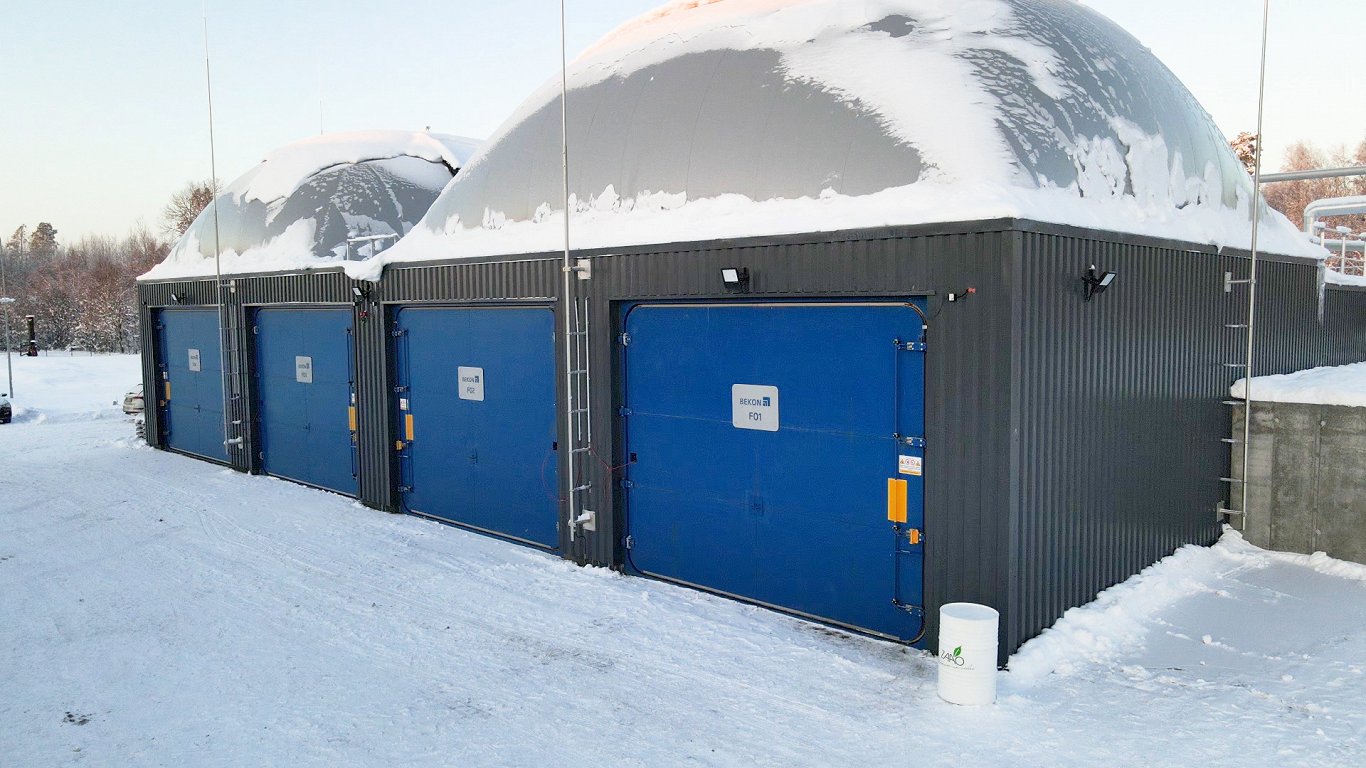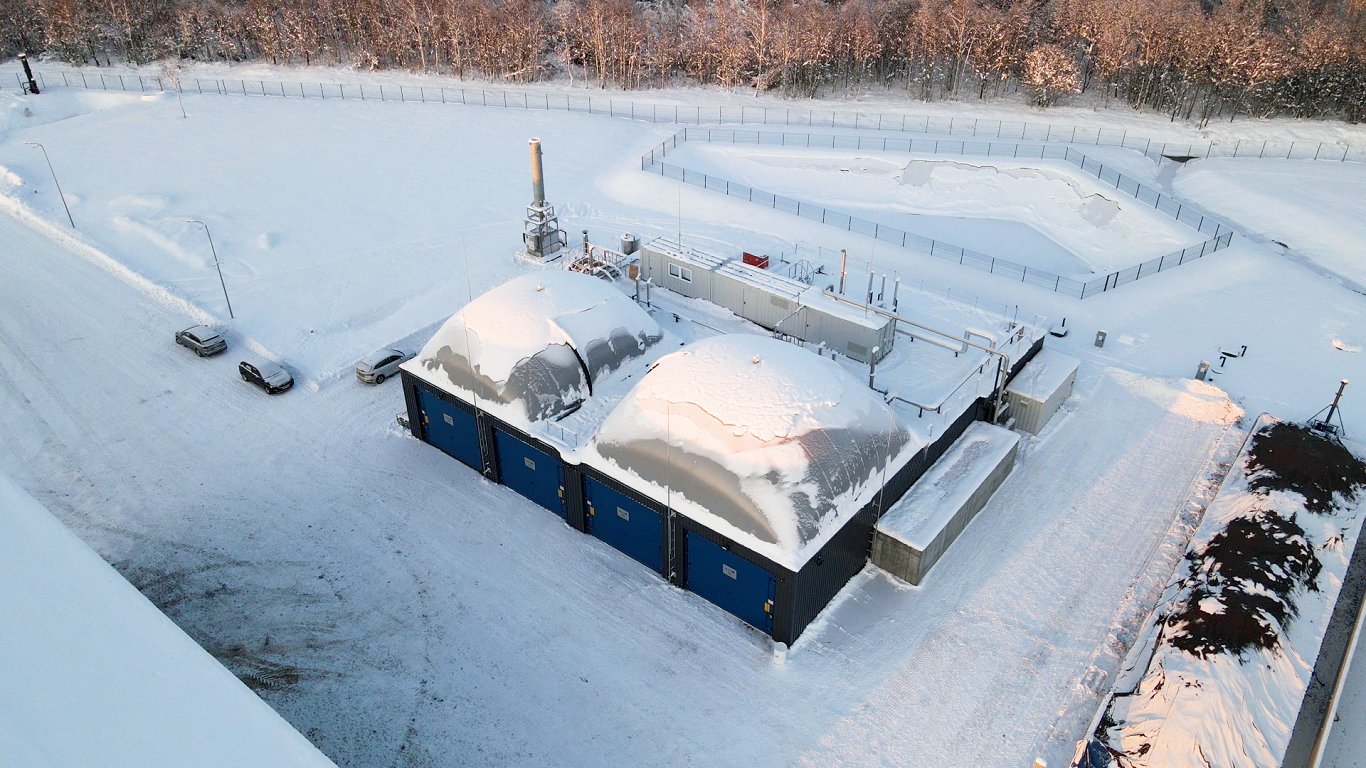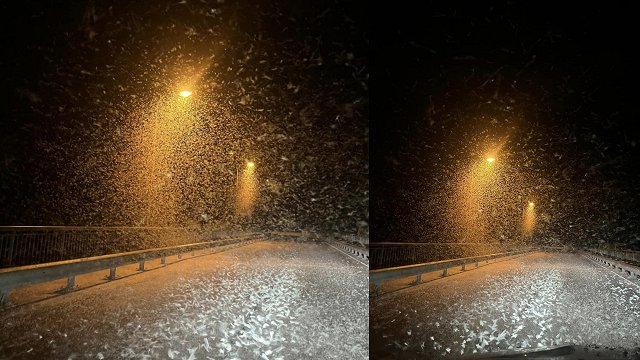Waste management company "ZAAO" head of development Mārtiņš Niklas, said: "Until now, most of the waste basically ended up in a landfill and produced methane emissions. On average, one ton of household waste produces about 80-100 cubic meters of methane during its life cycle. But with these plants, within 21 days, up to 80-85% of organic dry matter is converted into biogas and organic dry matter is also reduced."
The company has chosen German technology for the process during which biological waste is recycled. "In our country, we are the first who have created this type of equipment, it is a bit more complicated, but at the same time we hope for a better result," said Niklas.
"ZAAO" chairman of the board, Gints Kukainis, stated that the factory is currently still operating in test mode: "The factory will produce gas, from the gas we produce thermal energy for ourselves and the production building, and from the rest we produce electricity. So we have two products from gas: thermal energy and electricity, which goes to the common network. And the factory will still produce technical compost as a final result."

The company admitted that the collection of organic waste will be a challenge in the sense that it will rely upon the public being diligent in their waste-sorting habits. A pilot project involving residents of a Cēsis apartment block has been deemed a success.
"One thing is that the volume is very small for that amount of apartment buildings, so very few residents sort this biological waste. But they are quite qualitatively sorted, there is very little admixture that is not biological waste, this makes us happy," said Kukainis.
Despite frequent claims that Latvia is a particularly 'green' country, it has been slow to introduce mandatory waste recycling and until now the sorting of waste into different groups for recycling has not been widespread. From January 1, 2024, the sorting of biodegradable or biowaste will be mandatory in Latvia. A PET bottle deposit recycling system was introduced in 2022.





























